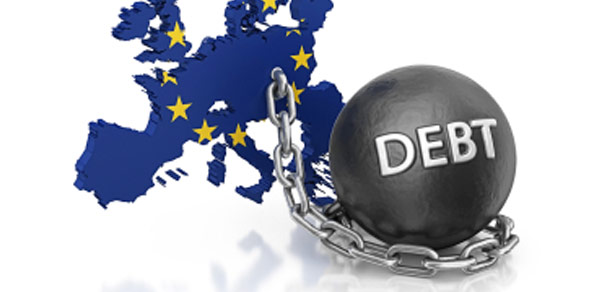Germany’s ten biggest banks need €127 billion euros of additional capital the German newspaper Frankfurt Allgemeine Sonntagszeitung reported over the weekend, citing a study by economic research institute DIW. The paper quoted Dorothea Schaefer, a respected research director for financial markets at DIW, who predicts that the ratio of banks’ equity capital to balance sheet needs to rise by (at least) 5 percent. This fresh claim rekindled the questions raised by the IMF in late August, early September who suggested that the capital shortfall European banks faced was circa €200 billion. If the top ten German banks require €127 billion that only leaves another €63 billion to build up the reserves of other leading European banks, that reads as wildly over optimistic.
At the time the IMF claim drew a furious response by certain finance ministers, Spain’s Elena Salgado accusing the IMF of bias. IMF Managing Director Christine Lagarde also drew intense criticism from European policymakers after calling for a mandatory recapitalization of European banks shortly after her hasty coronation. These recapitalisation claims lend support to a Goldman Sachs’ analyst’s claims and cloaked advice that there needs to be a unified one off ‘mega’ QE and bailout in Europe of €1 trillion otherwise there’ll simply be more ‘begging bowl’ requests inside two years if the next rounds of QE and bail outs aren’t big enough. Alan Brazil, a strategist at the trading department at Goldman Sachs, published his opinion to his hedge fund clients in a 54-page report in early September.
This view was echoed previously by previous IMF head Dominic Strauss Kahn, who had the temerity to suggest the days of dollar dominance, as the world’s reserve currency, were over.. DSK then missed his flight out of JFK. Re-appearing over the weekend, on prime time French television, he once again suggested that Greece’s problems were insurmountable and insoluble, in effect their singular debt mountain cannot be scaled. A reasonable opinion considering Greece is currently paying 25% in order to borrow money over a ten year period.
European shares have fallen sharply in morning trade. The regional election defeat for Germany’s chancellor Angela Merkel, the cancellation of a visit to the USA by Greek Prime Minister George Papandreou and the lack of published coherent strategy (after days of finance minister meetings in Poland) once again raised concerns over the region’s debt crisis. The STOXX is down 2.28%, the DAX down 2.63%, the CAC down by 2.27% and ftse is down 1.8%. The European bank sector has been hit as long term solvency questions re-appear. This fall was preceded by the fall on the Hang Seng bourse closing down 2.76%, the CSI closed down 2.0%. The Nikkei closed up 2.25%. The SPX daily future suggests the New York trading session will commerce with the SPX opening down 1.5%.
“The weekend meeting of the EU produced nothing decisive and a lack of direction will raise questions about solvency,” Lena Komileva, senior vice president, foreign exchange at Brown Brother Harriman. “We expect the euro to retest the Sept 12 low of just below $1.35 in coming days.” The euro dipped briefly below its support level near $1.3664, It hit a seven-month trough of $1.34949 on trading platform on Sept 12; on Monday, it fell as low as $1.3645.
The data releases that will affect the USA trading sessions could (once again) be overshadowed by key macro-economic indecision and the two day Fed meeting starting on Tuesday. The Fed is likely to outline a plan to buy longer-term securities and provide a boost to confidence during its two-day policy strategy meeting. The only publication of significance today is building starts in the USA, the NAHB is an index based on a sample of home builders that represents home sales and future building expectations.






Comments are closed.